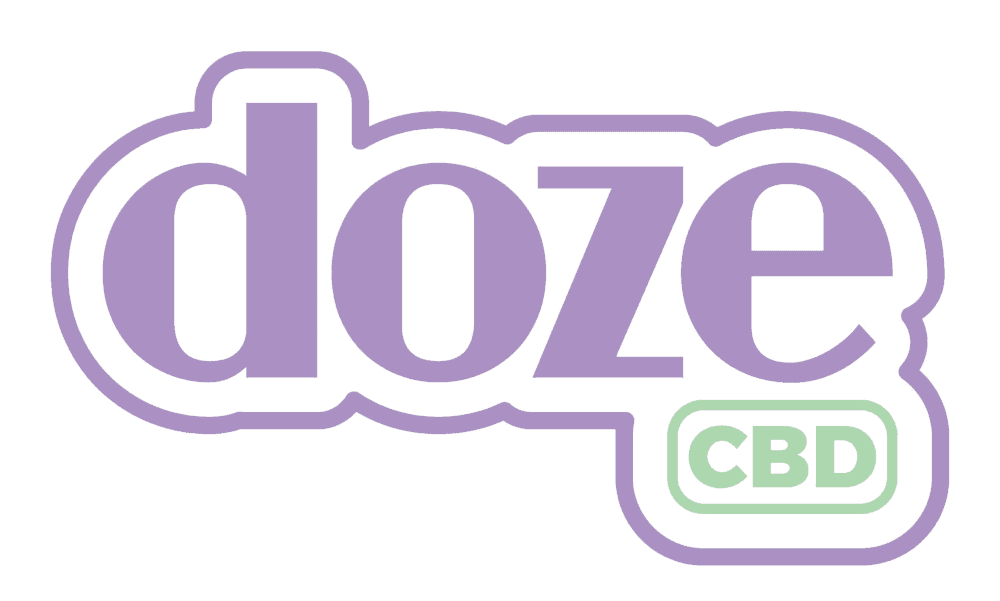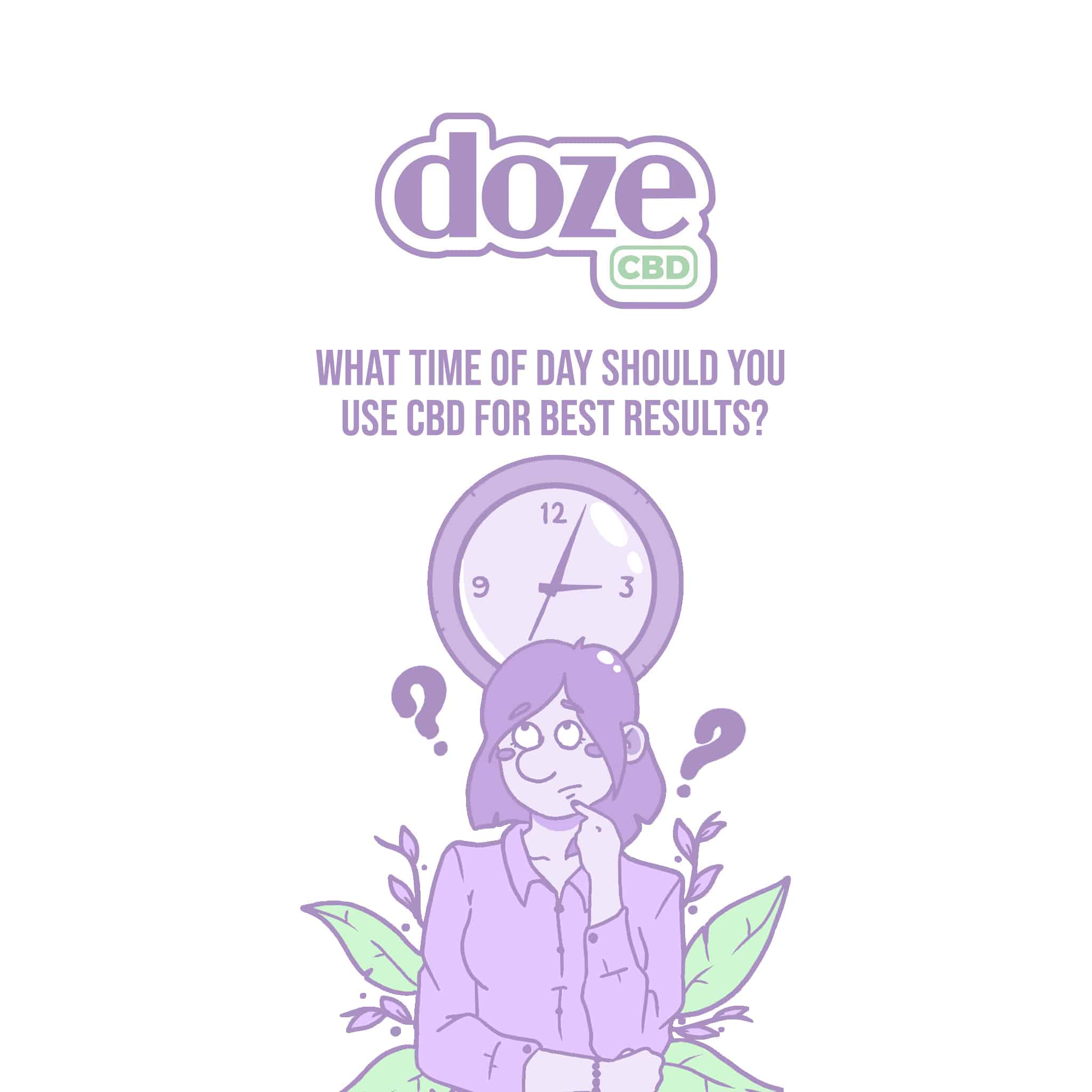Routines are great, particularly when it comes to staying healthy. Most of us have fallen into a pretty steady routine of taking our morning vitamins, boosting our flagging energy levels with a well-timed cup of coffee mid-morning, getting that late afternoon snack in to fill the long, gaping void between lunch and dinner, and, of course, satisfying that sweet tooth with a little something at the end of the day.
We know how much water to drink, how to get our steps in, and when to get to bed if we don’t want to feel groggy and under par the next day.
Whether you choose to buy CBD flower or oil, this miraculous compound is a great addition to a well-rounded wellness routine…but is there an optimal time to take it? Yes – and no. It largely depends on the particular benefits you’re hoping to benefit from – and how strong of an experience you’re looking for…
CBD at Night
Some users find that CBD may help with promoting a deep, restorative night’s sleep – and we’ve previously written about finding the best CBD flower for sleep on our blog. CBD doesn’t produce the intoxicating high associated with weed; it offers a much more subtle, relaxing feeling, which is perfect for helping an addled mind and tense body wind down.
But it also matters how you take your CBD, since different methods will produce different effects – and to different timescales.
Smoking or vaping CBD produces a more tangible effect on the mind and body than a few drops of CBD oil. By inhaling that CBD directly into the lungs, it reaches the blood stream faster – and means you’ll get a pretty high dose, making the effects more palpable.
Pros: taking CBD at night may help you to get off to sleep easier, even if you’ve experienced insomnia and trouble getting off. Some users report that CBD helps them de-stress and, since stress can easily interrupt sleep, this may prove beneficial.
CBD has also shown some potential as a form of natural pain relief. Numerous studies are being conducted into CBD’s value for sufferers of chronic pain conditions, such as arthritis, which means we may start to find out more soon about its value for pain – and, more specifically, helping sufferers get off to sleep. This may be due to its anti-inflammatory effects on the body.
Cons: some users find that CBD can stimulate their mind – although this may come down to the type of flower they are using at the time. Do your research into the right strains for peacefulness and sleep first, and focus on your own body’s response to CBD – not just other people’s experiences.
How to get your #dailydoze: you may choose to smoke or vape CBD at the very end of the day – or, if that’s not your style, a few drops of CBD oil in your pre-bed cup of tea (decaf or herbal, ideally) about an hour before you want to get off to sleep may do the trick. Alternatively, get creative in the kitchen and bake up a post-dinner sweet treat using some homemade ‘cannabutter’.
CBD During the Day
While CBD may be great for promoting a restful night’s sleep, that’s not to say you can’t or shouldn’t take it during the day instead. It won’t have you snoozing through your 11am meeting…
Some users find that CBD brings about a sense of calm and focus, which can be hugely beneficial on when tackling the usual stressors and hiccups of the day. It’s important to remember that the effects are still subtle, particularly if you’re getting your daily dose from an oil or supplement, and that they won’t make you too relaxed to get everything done. This literature review of human studies found that CBD showed promise in relieving social anxiety, without producing an unwanted sedative effect in users, for instance.
Even still, it’s always wise to start off on a low dose and work your way up to the perfect strength over time, rather than making any assumptions about your natural tolerance.
While researchers still aren’t 100% sure how CBD interacts with the body, they do know that this reaction takes place within the body’s endocannabinoid system, which works closely with the central nervous system. This may explain why users report both physical and psychological effects – for instance, on pain and stress, or inflammation and anxiety.
It’s important to remember, however, that the best possible benefit can be found from taking CBD regularly, rather than sporadically. Get into a routine – as you would with any other dietary supplement – and find something that works for you. A lot of users like CBD edibles, since they’re easy to remember and much more discrete than smoking or vaping. Alternatively, try oil.
Pros: adding CBD into your diet on a daily basis is easy, and it won’t produce any intoxicating effects that will make it hard for you to get around or do your job. Plenty of users find that it provides a gentle support from within, particularly if they’re prone to suffering the physical and mental effects of routine stress or anxiety.
Cons: if you’re particularly prone to experiencing the relaxing effects of CBD, you might have to take a lower dose – or find better results taking it at night-time, when the day’s chores are done and dusted. Listen to your body – it knows best.
How to get your #dailydoze: find what works for you, whether you add a dose of CBD oil your morning smoothie, a CBD gummy to your usual lunch, or bake some freshly ground CBD flower into your afternoon pick-me-up. Again, start off on a low dose and work your way up.
There’s no universally ‘right’ way to take CBD, and it all depends on you, your lifestyle, what you’re hoping to get from your CBD and what floats your boat. CBD’s popularity means that there’s bound to be an option for everybody – you’ve just got to figure out what works for you.




